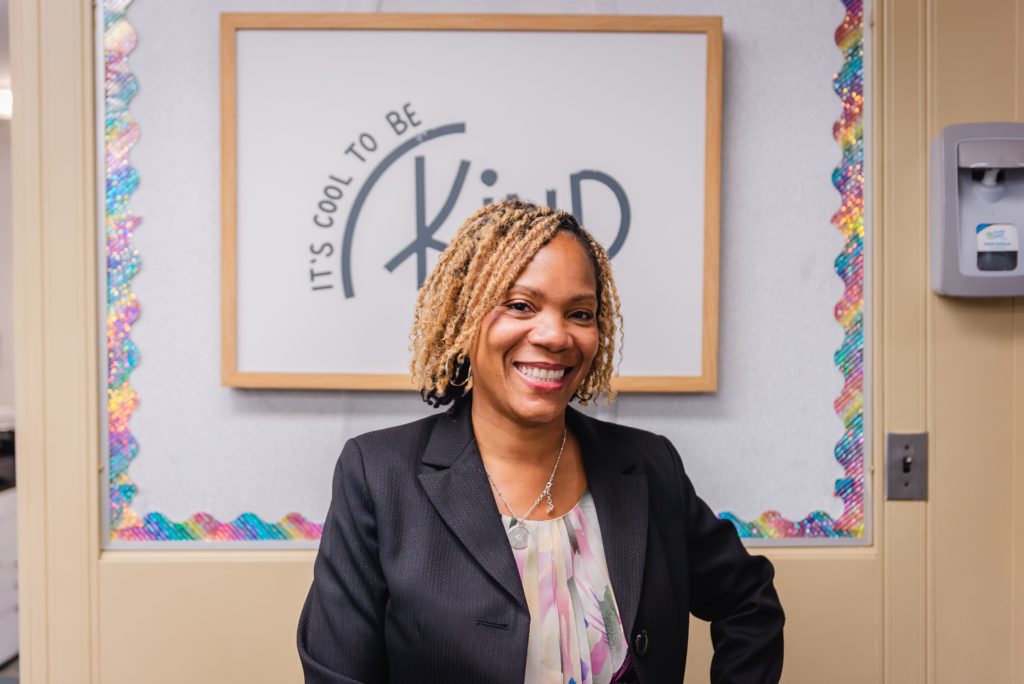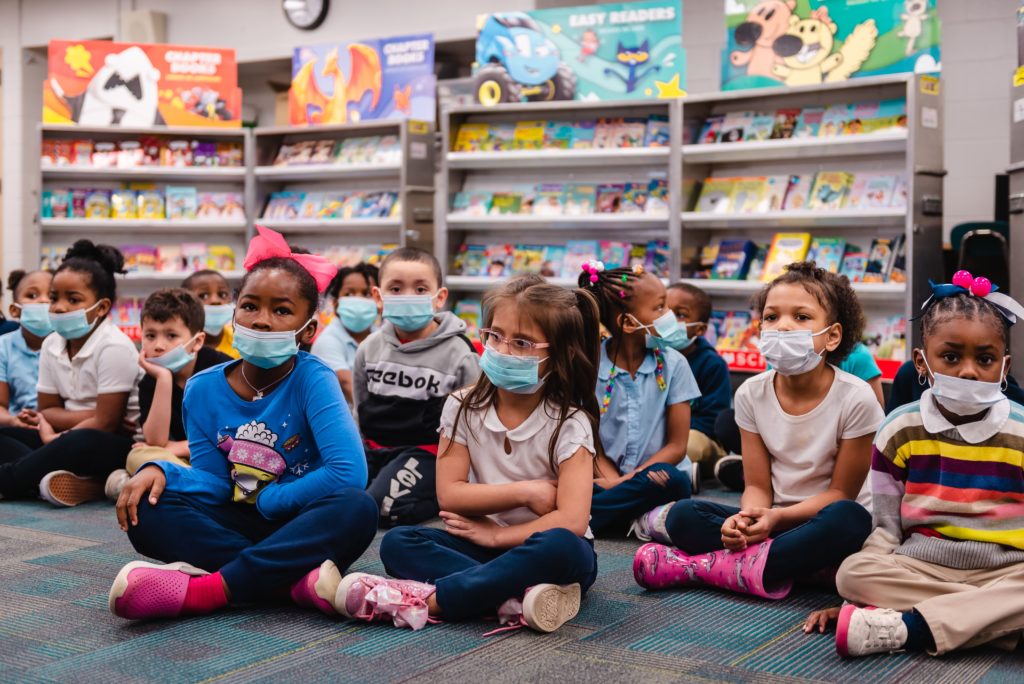Books Bring the World to Students at Herrington Elementary
Published on May 20, 2022 in Literacy

Samuel Montgomery, a third grader at Herrington Elementary School in Pontiac, feels proud of the 13 books he has at home. He recites from memory a list of titles that includes dictionaries, and books about singers and superheroes.
Samuel carefully scanned shelves for five new titles to add to his prized collection during a recent Scholastic book fair at his school.
“I really love to read,” Samuel said. “There’s a lot of information in books; you learn stuff.”
United Way for Southeastern Michigan understands the importance of literacy and aims to ensure that every child has equitable access to books regardless of their economic status. We have partnered with Scholastic, Inc. to host book fairs since 2019. This spring, we expanded the My Home Library Book Fairs to 21 schools across southeast Michigan, including our five Community Schools. Each student in attendance received five free books of their choice to create a home library.
Book access is essential to children’s development, according to the U.S. Department of Education. Ellen Gilchrist, senior director of K-12 Education and Community Initiatives at United Way for Southeastern Michigan, said that the work United Way does helps to build literacy through several initiatives, including increasing access to books.
“Children who have access to plenty of books are more proficient readers, which allows them to thrive in other areas,” Ellen said. “A core tenement of our education work is increasing access and addressing the literacy gaps that permeate our community. And, while we know that literacy is complex, we also know there are ways for every person in our region to have a lasting positive impact on this quiet crisis.”
Preparing Pontiac for the Future

Sixty-one percent of low-income families do not have any books in the home, according to the U.S. Department of Education. These children are, on average, three years behind children who grow up in homes with lots of books, even when controlled for other key factors. In our region, many cities are categorized as “book deserts,” meaning most homes have fewer than 100 books. This makes it difficult for children to get ahead.
In Pontiac School District (PSD), only 12 percent of third graders were proficient in reading compared to more affluent nearby communities like Lake Orion, where 73.5 percent of third graders are proficient, according to a recent article in the Detroit Free Press.
Carlita Earl, principal at Herrington, said being a United Way Community School will have a positive impact on literacy and other areas.
“I really feel like we hit the lottery,” said Carlita, who spent 22 years in education at Detroit Public Schools before joining PSD last year. “We’re really fortunate to have the support of United Way and to be able to better support our parents and students because we’re a Community School.”
Community Schools receive grant funding and additional supports from United Way for Southeastern Michigan to act as a resource-rich hub for families in the community. The schools also offer extra academic and wraparound support.
A Window to the World
Carlita watched as the first group of kindergarteners entered the room to pick out their books during the fair.
“Some of these kids might not have a single book at home,” she said. “Having a library at home will open so many doors for them.”
Carlita is not exaggerating – she’s speaking from experience. Through her own books and teachers, Carlita saw a way out of the poverty that encompassed her childhood.
“I remember how much books meant to me as a child,” Carlita said. “My mom would scrape together money for the Scholastic book fair. And if she couldn’t, my teachers would get me a book. It’s so wonderful that our students don’t have to deal with that pressure. They can choose five books and begin to learn what interests them and be exposed to new ideas.”
Carlita hopes that the parents will take an interest in the books their child chose and begin to read with them and engage with the content.
“Parent buy-in and engagement is everything. We’re all a team working in the best interest of the kids,” she said.
A space for everyone

One of the first things Herrington created with Community Schools funding is a resource room for parents. The cozy space includes sofas, computers, books and more, that parents can use. Once they’re in the space, they can meet with teachers, find online resources or just relax.
Herrington next will add a sensory room for students that will act as a safe, controlled, fun environment for students to work through any personal challenges. Students can learn to regulate their emotions in the sensory room before returning to regular activities.
The school also hired an attendance tracker to help parents overcome barriers — like lack of transportation — that might prevent their child from getting to school on time each day. Attendance has improved significantly since the beginning of the school year.
The school’s coordinator, an integral position at every Community School, helps families with other challenges such as lack of food, seasonal clothing, housing and more, by creating a network of partnerships in the surrounding area. At least 50 families received gas cards, while 75 received food baskets, and many students received coats, hats, and other winter gear.
The school environment has changed a lot over the past year for students like kindergartener Kayleen Jones, but her favorite part is the books.
“We get to take these books home?” she asks, raising her eyebrows as she holds five books, including “Hair Love” and “Not Quite Snow White.”
“They’re my books?”
As the news settles in, her smile widens, and she hugs the stack closer to her chest.
“These are my books.”
Book fairs are happening throughout the month of May. Volunteer today to help students in your area grow into strong readers.